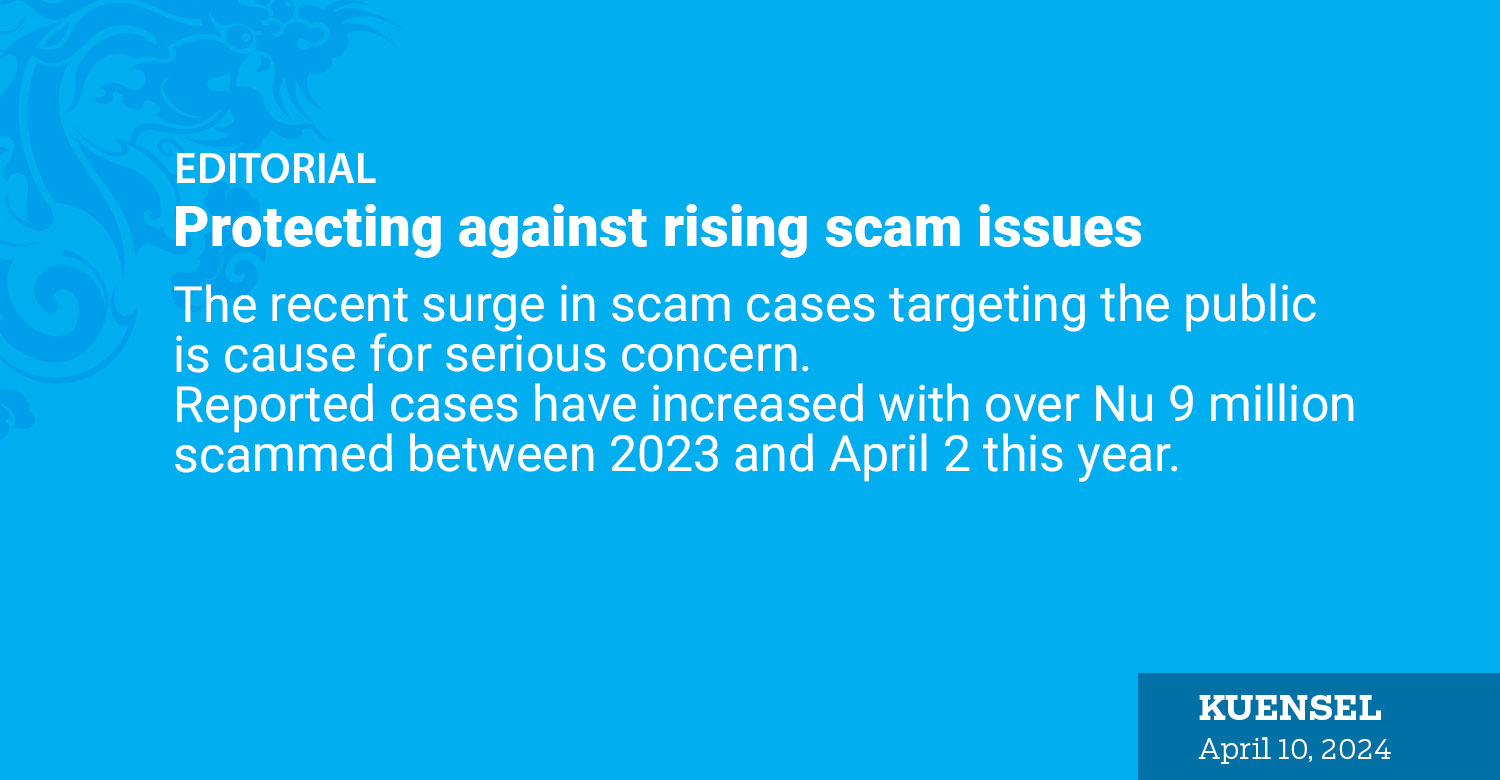The recent surge in scam cases targeting the public is cause for serious concern.
Reported cases have increased with over Nu 9 million scammed between 2023 and April 2 this year.
This alarming trend, with already 17 cases so far this year compared to 11 in the previous year, poses a growing threat to public security and financial well-being.
Scammers are employing a variety of deceptive tactics, including hacking email accounts, obtaining OTP numbers, and enticing victims into fraudulent investment schemes such as Qnet, Tallwin Ponzi scheme, crypto trading, lottery scams, and fake job opportunities.
These methods exploit individuals’ trust and aspirations for financial gain, requiring a need for heightened caution and awareness.
The majority of scam victims are reportedly from Thimphu, which points to the need for targeted awareness campaigns and preventive measures, particularly in urban areas where such scams appear to be more prevalent.
Efforts to raise awareness about scams are underway, with institutions like the Bank of Bhutan and other organisations using social media, websites, and direct client communication to educate the public.
People are being told to refrain from sharing personal information, avoid suspicious links, and stop engaging in risky ventures like crypto-business and Ponzi schemes.
However, despite repeated warnings from telecom companies and banks, individuals continue to share OTPs, leaving themselves vulnerable to fraudulent transactions.
It is imperative to reinforce the message about safeguarding sensitive information to prevent further financial losses.
Some victims were aware that they were being scammed but still fell prey to deception, indicating the sophistication of scam tactics.
More important, delayed reporting to authorities allows scammers to complete transactions before intervention.
There is an urgent need for prompt action and education on recognising and reporting scams.
While law enforcement agencies are investigating reported cases and taking legal action against perpetrators, swift and timely intervention is imperative to prevent further financial losses and hold scammers accountable for their actions.
It is important that we address financial crimes and hold perpetrators accountable for their actions. Developing robust preventive strategies will require strong collaboration between government agencies, financial institutions, and the public.
This rising trend demands heightened vigilance and proactive measures to protect individuals from falling victim to fraudulent schemes. Fostering a culture of awareness, caution, and prompt reporting will be key in combating financial scams.


